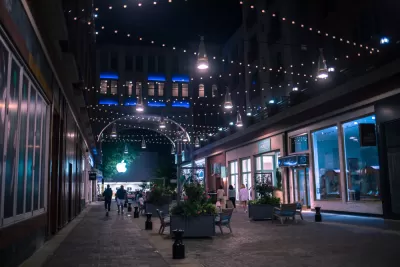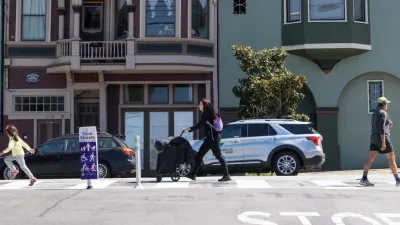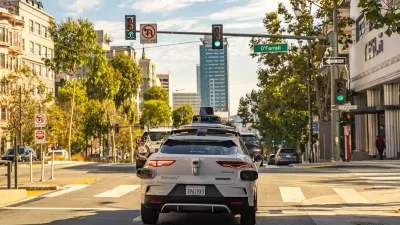The auto-centric county has been building new bike trails and pedestrian facilities, but more improvements are necessary to reduce the number of pedestrian deaths and injuries, planners say.

Planners in Montgomery County presented a set of recommendations aimed at making the region safer for pedestrians, particularly aging people and transit-dependent residents, reports Katherine Shaver in the Washington Post.
“Building sidewalks more quickly — and before residents have to ask — is one of dozens of recommendations they presented this past week for the first countywide “pedestrian master plan” aimed at retrofitting a suburb designed for cars.” Other suggestions include improved street lighting, more shade trees, and smaller county vehicles that are safer for pedestrians.
To ensure equity in deploying improvements, “Planners say they will use public input and safety data to prioritize improvements based on where they are needed most, rather than catering to residents who press for them most persistently.”
As Shaver notes, “About 11 percent of all trips in the Washington region are made by foot or bicycle, according to the Metropolitan Washington Council of Governments. Even as the region has opened new trails, added bike racks to buses and incorporated pedestrian and cycling facilities into larger transportation projects, COG officials say, safety remains a problem.” Pedestrians remain highly vulnerable: “While they were involved in 4 percent of all Montgomery collisions between 2015 and 2020, they suffered 27 percent of severe injuries and fatalities, planners say.”
FULL STORY: In auto-centric Montgomery, planners suggest ways to make walking safer

Alabama: Trump Terminates Settlements for Black Communities Harmed By Raw Sewage
Trump deemed the landmark civil rights agreement “illegal DEI and environmental justice policy.”

Study: Maui’s Plan to Convert Vacation Rentals to Long-Term Housing Could Cause Nearly $1 Billion Economic Loss
The plan would reduce visitor accommodation by 25% resulting in 1,900 jobs lost.

Planetizen Federal Action Tracker
A weekly monitor of how Trump’s orders and actions are impacting planners and planning in America.

Waymo Gets Permission to Map SF’s Market Street
If allowed to operate on the traffic-restricted street, Waymo’s autonomous taxis would have a leg up over ride-hailing competitors — and counter the city’s efforts to grow bike and pedestrian on the thoroughfare.

Parklet Symposium Highlights the Success of Shared Spaces
Parklets got a boost during the Covid-19 pandemic, when the concept was translated to outdoor dining programs that offered restaurants a lifeline during the shutdown.

Federal Homelessness Agency Places Entire Staff on Leave
The U.S. Interagency Council on Homelessness is the only federal agency dedicated to preventing and ending homelessness.
Urban Design for Planners 1: Software Tools
This six-course series explores essential urban design concepts using open source software and equips planners with the tools they need to participate fully in the urban design process.
Planning for Universal Design
Learn the tools for implementing Universal Design in planning regulations.
Caltrans
Smith Gee Studio
Institute for Housing and Urban Development Studies (IHS)
City of Grandview
Harvard GSD Executive Education
Toledo-Lucas County Plan Commissions
Salt Lake City
NYU Wagner Graduate School of Public Service





























